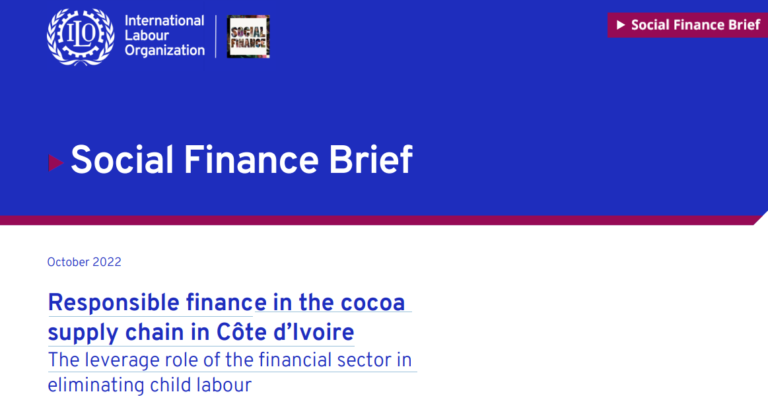This brief is based on a study conducted as part of the ACCEL Africa Project, a regional project implemented by the ILO, funded by the Government of the Netherlands, and focusing on the issue of child labour in selected supply chains in six countries in Africa. The study seeks to assess the responsibility as well as legal obligations of financial sector actors in eliminating child labour in the cocoa supply chain in Côte d’Ivoire, especially those actors financing cocoa transactions at the level of exporters, buyers, and cooperatives. Current practices and potential roles of financial sector actors to address the issue of child labour in this context are assessed, and recommended actions are presented.

